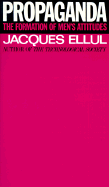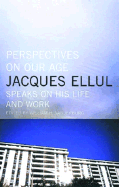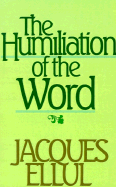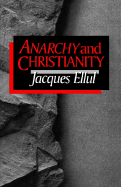A penetrating analysis of our
technical civilization and of the effect of an
increasingly standardized culture on the future of man.
Propaganda: The Formation of Men's Attitudes

About this title:
'The theme of Propaganda is quite simply. . . that
when our new technology encompasses any culture or
society, the result is propaganda. . . . Ellul has made
many splendid contributions in this book.' -Robert R.
Kirsch, The Los Angeles Times
Perspective on Our Age

About this title:
Originally broadcast on CBC Radio's Ideas as a series
of interviews, Ellul's first-person approach here makes
his ideas accessible to readers looking for new ways of
understanding our society. Perspectives on Our Age also
gives unique new insight into Ellul's life, his work,
and the origins and development of his beliefs and
theories.
The Technological Bluff
About this title:
This poignant critique of modern society shows how we
have mistakenly allowed technology to fool us into
thinking about all of our problems in terms of technical
progress. This technological bluff, Ellul claims,
deprives us of active adaptation to and criticism of
technical growth.
The Humiliation of
the Word

About this title:
Intertwining sociological analysis with theological
discussion, Jacques Ellul examines how reality (which is
visual) has superseded truth (which is verbal) in modern
times, leading to the devaluation of the word. An
important book that will be of particular interest to
those concerned with language philosophy, literary
criticism, theology, and art.
Anarchy and Christianity

About this title:
Jacques Ellul blends politics, theology, history, and
exposition in this analysis of the relationship between
political anarchy and biblical faith. On the one hand,
suggests Ellul, anarchists need to understand that much
of their criticism of Christianity applies only to the
form of religion that developed, not to biblical faith.
Christians, on the other hand, need to look at the
biblical texts and not reject anarchy as a political
option, for it seems closest to biblical thinking. Ellul
here defines anarchy as the nonviolent repudiation of
authority. He looks at the Bible as the source of
anarchy (in the sense of nondomination, not disorder),
working through the Old Testament history, Jesus'
ministry, and finally the early church's view of power
as reflected in the New Testament writings. "With the
verve and the gift of trenchant simplification to which
we have been accustomed, Ellul lays bare the fallacy
that Christianity should normally be the ally of civil
authority."
-- John Howard Yoder